-
 Bitcoin
Bitcoin $113900
-1.39% -
 Ethereum
Ethereum $3517
-4.15% -
 XRP
XRP $3.009
1.59% -
 Tether USDt
Tether USDt $0.9997
-0.04% -
 BNB
BNB $766.8
-1.41% -
 Solana
Solana $164.6
-2.38% -
 USDC
USDC $0.9998
-0.02% -
 TRON
TRON $0.3277
0.65% -
 Dogecoin
Dogecoin $0.2023
-1.67% -
 Cardano
Cardano $0.7246
0.05% -
 Hyperliquid
Hyperliquid $38.27
-4.77% -
 Sui
Sui $3.528
-0.52% -
 Stellar
Stellar $0.3890
-0.73% -
 Chainlink
Chainlink $16.16
-2.69% -
 Bitcoin Cash
Bitcoin Cash $539.9
-4.38% -
 Hedera
Hedera $0.2425
-2.00% -
 Avalanche
Avalanche $21.71
-0.97% -
 Toncoin
Toncoin $3.662
5.73% -
 Ethena USDe
Ethena USDe $1.000
-0.02% -
 UNUS SED LEO
UNUS SED LEO $8.964
0.35% -
 Litecoin
Litecoin $107.7
2.33% -
 Shiba Inu
Shiba Inu $0.00001223
-0.40% -
 Polkadot
Polkadot $3.617
-0.97% -
 Uniswap
Uniswap $9.052
-2.49% -
 Monero
Monero $295.1
-3.79% -
 Dai
Dai $0.9999
0.00% -
 Bitget Token
Bitget Token $4.315
-1.85% -
 Pepe
Pepe $0.00001060
0.11% -
 Cronos
Cronos $0.1342
-2.72% -
 Aave
Aave $256.0
-0.87%
How to fix a failed cryptocurrency deposit to Kraken
Always verify the correct network and address on Kraken before depositing crypto—sending via the wrong network (e.g., ERC-20 instead of TRC-20) may result in permanent fund loss.
Aug 02, 2025 at 03:22 pm
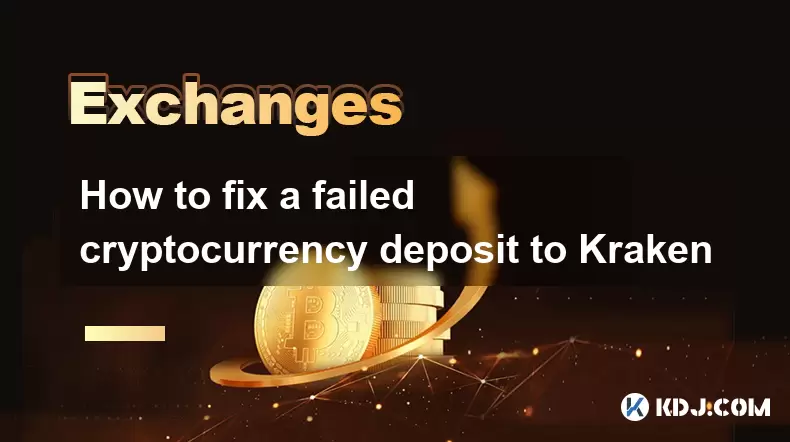
Understanding Why a Cryptocurrency Deposit Fails on Kraken
When a cryptocurrency deposit fails on Kraken, the issue typically stems from one of several common causes. The most frequent reason is sending the wrong network type for a given cryptocurrency. For example, transferring USDT via the ERC-20 network to a deposit address that only accepts TRC-20 will result in a failed or lost deposit. Kraken supports multiple networks for certain tokens, and users must ensure the sending network matches Kraken’s accepted network for that asset.
Another common issue is sending unsupported cryptocurrencies. Kraken does not support every coin or token in existence. Attempting to deposit a token not listed on Kraken, even if it shares a similar name with a supported one, will lead to permanent loss of funds unless manually recovered by Kraken support. Always verify the exact name and ticker of the cryptocurrency on Kraken’s official deposit page.
Network congestion or transaction delays may also create the illusion of a failed deposit. If the blockchain is congested, confirmations may take longer than usual. Kraken requires a minimum number of confirmations before crediting a deposit. Users should check the required confirmation count for their specific cryptocurrency on Kraken’s help center.
Verifying the Correct Deposit Address and Network
To avoid deposit failures, always retrieve your deposit address directly from Kraken’s funding page. Never reuse old addresses or copy from external sources. Log in to your Kraken account, navigate to Funding > Deposit, select the cryptocurrency, and choose the correct network from the dropdown menu. The address displayed will be specific to that network.
For example, when depositing USDC, you may see options like Ethereum (ERC-20), Polygon (MATIC), or Arbitrum. Selecting Ethereum generates an address starting with "0x" that only accepts ERC-20 tokens. Sending USDC via Polygon to that address will result in loss.
After selecting the network, double-check the first and last four characters of the generated address against the one you’re about to send from. Use copy-paste only from Kraken’s interface to avoid typos. Confirm the network on your sending wallet matches exactly. For instance, if sending from MetaMask, ensure the active network is Ethereum Mainnet when depositing ERC-20 tokens.
Checking Transaction Status on the Blockchain
If a deposit does not appear in your Kraken account, verify its status on a blockchain explorer. Copy the transaction hash (TXID) from your sending wallet and paste it into a relevant explorer—Etherscan for Ethereum, Tronscan for TRON, or Blockchair for Bitcoin.
Look for the following details:
- Whether the transaction has been confirmed by the network
- The receiving address matches your Kraken deposit address
- The token and amount sent are correct
- The network used matches Kraken’s accepted network
If the transaction shows as confirmed but Kraken hasn’t credited it, the issue may be internal processing delay. Kraken may require 3 to 6 confirmations for Bitcoin or 30+ for Ethereum during high congestion. Wait at least 24 hours before escalating.
If the TXID shows "failed" or "reverted", the transaction did not execute. This can happen due to insufficient gas, incorrect token standards, or smart contract errors. In such cases, funds are usually returned to the sender, though it may take time.
Recovering Funds Sent to the Wrong Network
If you sent cryptocurrency to Kraken via an unsupported network, immediate action is required. Kraken may not automatically detect or credit such deposits. First, confirm the network used and compare it to Kraken’s accepted networks for that asset. If they do not match, contact Kraken Support immediately.
Prepare the following information before submitting a ticket:
- Transaction hash (TXID)
- Sending and receiving addresses
- Cryptocurrency and amount sent
- Network used for the transfer
- Screenshot of the transaction details
Kraken may be able to recover funds sent via certain networks, especially if the deposit address is still associated with your account. However, recovery is not guaranteed and depends on technical feasibility. For example, deposits sent via BSC (BEP-20) to an ERC-20 address are often unrecoverable because the networks are incompatible.
Avoid using third-party recovery services. These are frequently scams. Only Kraken Support can assist with internal deposit recovery.
Preventing Future Deposit Failures
To prevent recurrence, always follow a strict checklist before sending any deposit:
- Log in to Kraken and go to the Funding section
- Select the correct cryptocurrency
- Choose the network that matches your sending wallet
- Generate a new deposit address each time if recommended
- Verify the address format (e.g., "0x" for Ethereum, "T" for TRON)
- Send a small test transaction first, especially for large amounts
Enable two-factor authentication (2FA) on your Kraken account to protect against unauthorized access during the deposit process. Use Kraken’s deposit notifications to receive alerts when funds are credited.
Bookmark Kraken’s official deposit methods page for quick reference. Regularly review Kraken’s updated list of supported networks, as they may add or remove options based on technical or regulatory changes.
Handling Uncredited Deposits After Confirmation
Even with a confirmed transaction, Kraken may not credit the deposit due to internal processing queues. Check your deposit history in the Funding section. If the transaction appears as "pending," wait for additional confirmations.
If the transaction is confirmed on-chain but not visible in Kraken, submit a support ticket. Include the TXID and a link to the blockchain explorer page. Kraken’s backend systems may require manual intervention to sync the deposit.
Do not resend the transaction. Doing so may result in duplicate deposits or further complications. Only one transaction per deposit is allowed.
Frequently Asked Questions
Can Kraken recover a deposit sent to the wrong cryptocurrency address?
If you sent funds to a valid Kraken deposit address but for a different cryptocurrency (e.g., sent BTC to an ETH address), recovery is unlikely. Kraken cannot access funds on blockchains they do not support. Always ensure the deposit address matches the cryptocurrency being sent.
What should I do if my deposit is stuck in "pending" for over 48 hours?
First, verify the transaction on a blockchain explorer. If confirmed, wait until Kraken’s required confirmation threshold is met. If still uncredited, contact Kraken Support with the TXID and proof of confirmation. Internal delays can occur during high traffic periods.
Is it safe to use third-party tools to generate Kraken deposit addresses?
No. Always generate deposit addresses directly within your Kraken account. Third-party tools may generate incorrect or malicious addresses, leading to permanent fund loss.
Why does Kraken require multiple networks for the same token?
Tokens like USDT exist on multiple blockchains (Ethereum, TRON, Solana, etc.). Each network has different fees, speeds, and compatibility. Kraken supports multiple networks to give users flexibility, but the sender must match the network exactly.
Disclaimer:info@kdj.com
The information provided is not trading advice. kdj.com does not assume any responsibility for any investments made based on the information provided in this article. Cryptocurrencies are highly volatile and it is highly recommended that you invest with caution after thorough research!
If you believe that the content used on this website infringes your copyright, please contact us immediately (info@kdj.com) and we will delete it promptly.
- Worldcoin, Identity, WLD Price: Decoding the NYC Crypto Buzz
- 2025-08-02 21:10:12
- Shiba Inu: Utility and Community Strength Drive Crypto's Evolution
- 2025-08-02 21:50:12
- Crypto Donations, Trump PAC, and Bitcoin: A New York Minute on Political Coin
- 2025-08-02 20:30:12
- Crypto Market Under Pressure: Bearish Momentum and Rising Volatility Take Hold
- 2025-08-02 20:30:12
- Crypto Market Carnage: Liquidations Soar as Ethereum and Bitcoin Take a Beating
- 2025-08-02 21:55:12
- DeFi Token Summer Gains: Is Mutuum Finance the Real Deal?
- 2025-08-02 18:30:12
Related knowledge
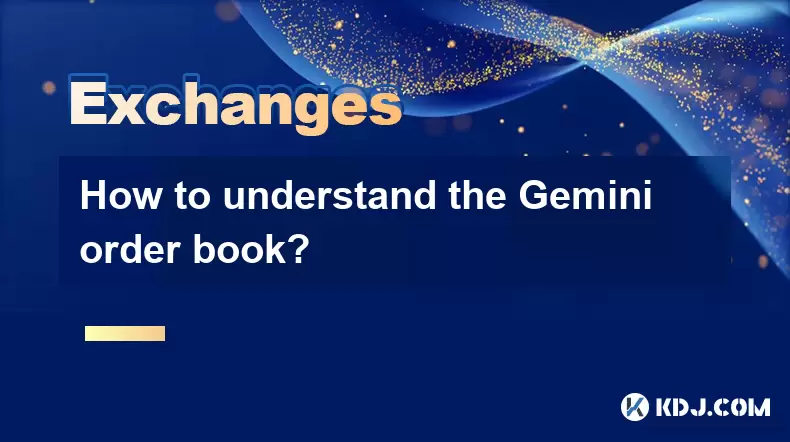
How to understand the Gemini order book?
Aug 02,2025 at 03:35pm
What Is the Gemini Order Book?The Gemini order book is a real-time ledger that displays all open buy and sell orders for a specific cryptocurrency tra...
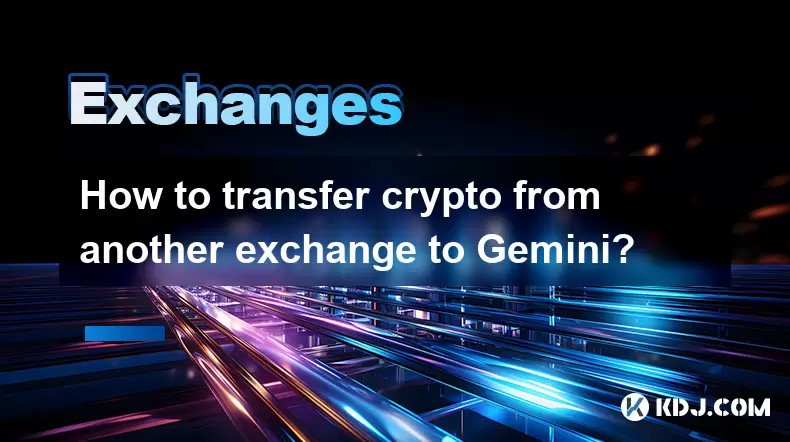
How to transfer crypto from another exchange to Gemini?
Aug 02,2025 at 07:28pm
Understanding the Basics of Crypto Transfers to GeminiTransferring cryptocurrency from another exchange to Gemini involves moving digital assets from ...
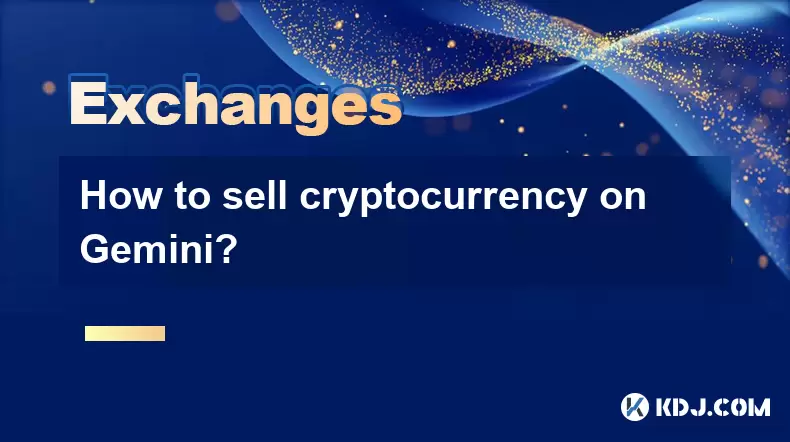
How to sell cryptocurrency on Gemini?
Aug 02,2025 at 05:07pm
Understanding the Gemini Platform and Account SetupBefore selling cryptocurrency on Gemini, it’s essential to ensure you have a fully verified account...

How to fix a failed cryptocurrency deposit to Kraken
Aug 02,2025 at 03:22pm
Understanding Why a Cryptocurrency Deposit Fails on KrakenWhen a cryptocurrency deposit fails on Kraken, the issue typically stems from one of several...
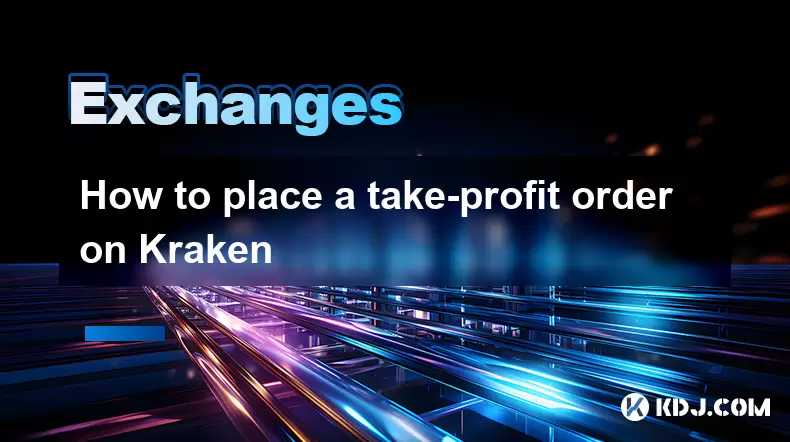
How to place a take-profit order on Kraken
Aug 02,2025 at 02:28pm
Understanding the Role of Private Keys in Cryptocurrency SecurityIn the world of cryptocurrency, private keys are the most critical component of digit...
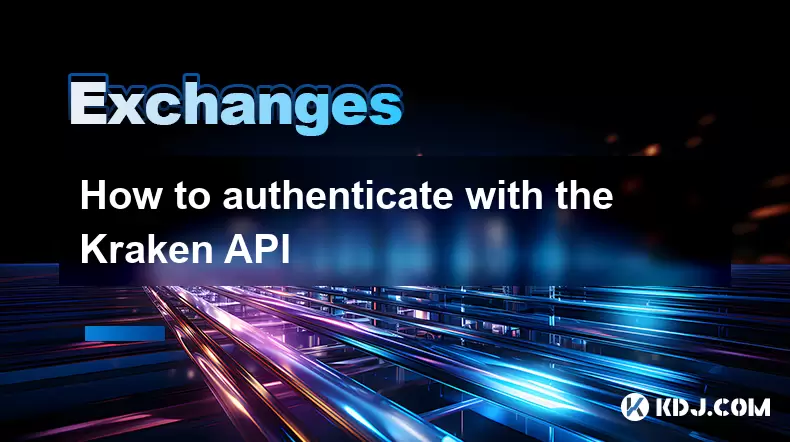
How to authenticate with the Kraken API
Aug 02,2025 at 01:49pm
Understanding Kraken API Authentication RequirementsTo interact securely with the Kraken API, authentication is required for any private endpoints suc...

How to understand the Gemini order book?
Aug 02,2025 at 03:35pm
What Is the Gemini Order Book?The Gemini order book is a real-time ledger that displays all open buy and sell orders for a specific cryptocurrency tra...

How to transfer crypto from another exchange to Gemini?
Aug 02,2025 at 07:28pm
Understanding the Basics of Crypto Transfers to GeminiTransferring cryptocurrency from another exchange to Gemini involves moving digital assets from ...

How to sell cryptocurrency on Gemini?
Aug 02,2025 at 05:07pm
Understanding the Gemini Platform and Account SetupBefore selling cryptocurrency on Gemini, it’s essential to ensure you have a fully verified account...

How to fix a failed cryptocurrency deposit to Kraken
Aug 02,2025 at 03:22pm
Understanding Why a Cryptocurrency Deposit Fails on KrakenWhen a cryptocurrency deposit fails on Kraken, the issue typically stems from one of several...

How to place a take-profit order on Kraken
Aug 02,2025 at 02:28pm
Understanding the Role of Private Keys in Cryptocurrency SecurityIn the world of cryptocurrency, private keys are the most critical component of digit...

How to authenticate with the Kraken API
Aug 02,2025 at 01:49pm
Understanding Kraken API Authentication RequirementsTo interact securely with the Kraken API, authentication is required for any private endpoints suc...
See all articles

























































































